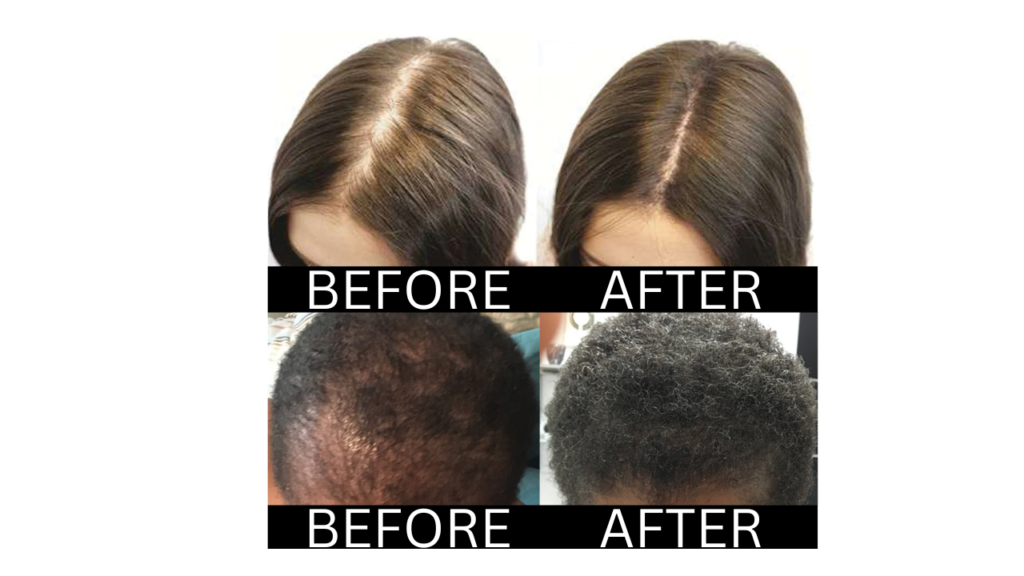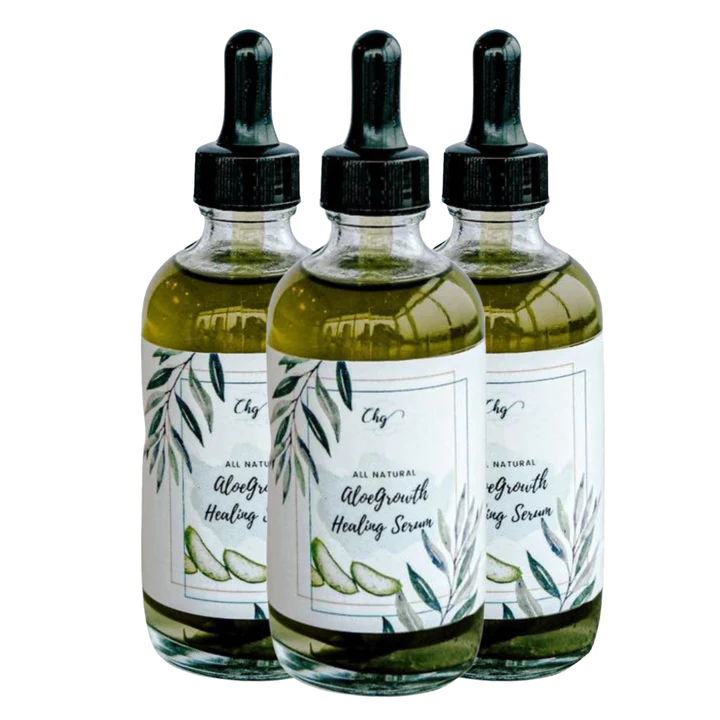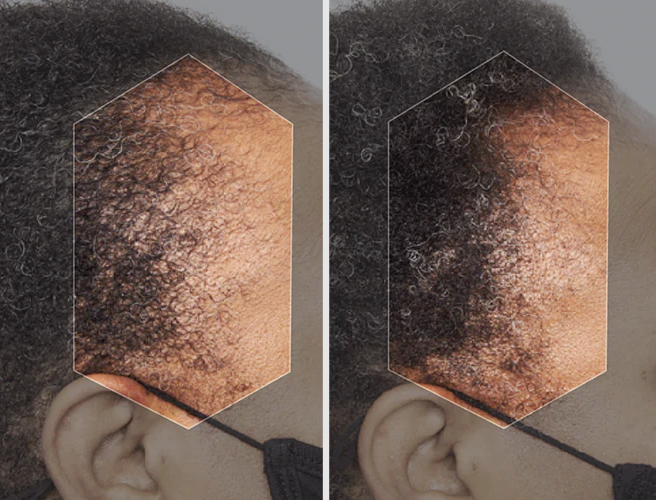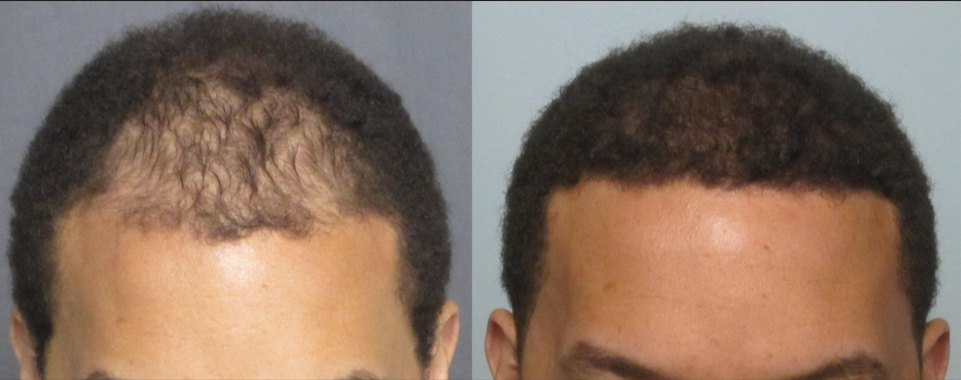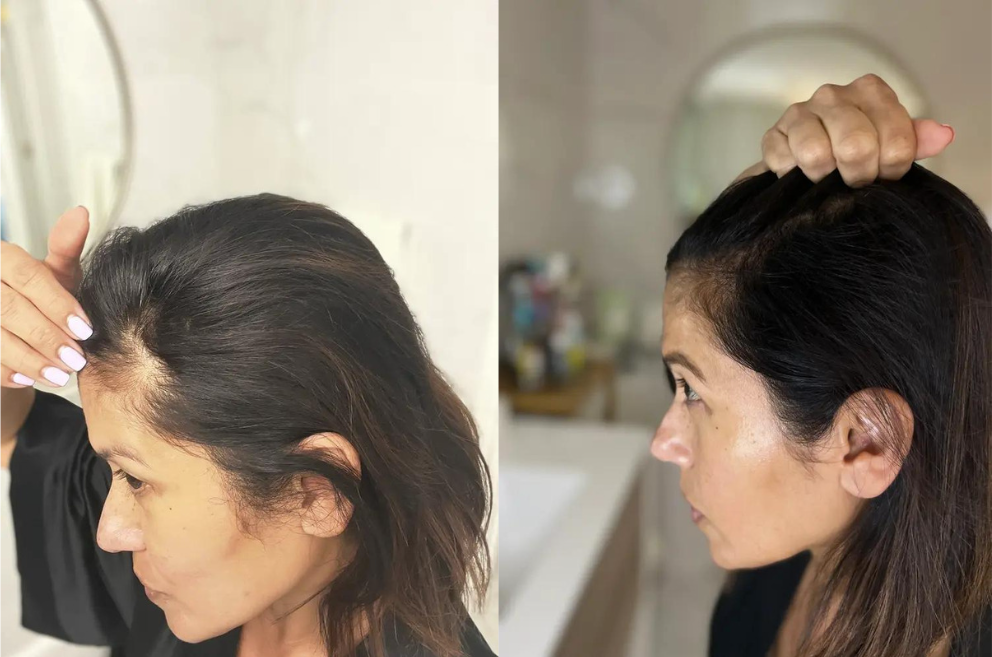Hair growth and maintenance is a booming industry, and with good reason. Nearly 50% of men and 50% of women, globally, struggle with some form of hair loss, and it’s a problem that stems from many different factors. Hair health. Scalp condition. Sebum production and various vitamins are needed to keep hair strong, shiny, and manageable. If you have an overabundance of them, however, you could damage your hair, too. Depending on your genetics, where you live, and how often you shampoo, you could be more or less disposed to hair loss or simply dull, brittle, unhealthy hair.
With so much at play, building a product from quality ingredients is a high priority across the board for hair growth scientists. And aloe vera oil is the leading ingredient for this, based on the wide array of benefits it offers for hair growth.
Ready to find out what it is exactly that makes this miracle ingredient the golden bullet for defeating hair loss? Want to learn more about aloe vera oil and how you can start using it in your hair care routine? Maybe you’d like to make your own at home or get a feel for which products are currently sweeping the market.
We’ve got a lot to cover, so let’s get started!
What is Aloe Vera Hair Growth Oil?
Any skin or healthcare product worth its salt had better be ready to explain where it comes from and why it’s the best on the market. Luckily, for Aloe Vera, there’s almost no need to explain. It’s been around for years, and the consumer market has grown to expect a certain level of quality from it. Don’t believe us? Read on!
Aloe vera has been a popular supplement for use in cosmetics and healthcare serums for many years. Going as far back as the early 1800s, aloe vera (or Aloe barbadensis miller) has found a place in the treatment of various skin diseases, burns, wounds, and other conditions. Everything from dermatitis to constipation has found a place on aloe vera’s wall, with the plant’s healing properties being closely related to the plant’s succulent leaves.
And human cultures have been using it for generations. The plant has enjoyed visibility in the medical world going back as far as ancient Mesopotamian historical records, where it was likely transplanted alongside routes through the Middle East, Coastal Africa, and Mediterranean regions.
And it’s no surprise Aloe Vera has long since been considered a healing product throughout every culture that has embraced its usage. Ancient Egyptians considered this the “Plant of immortality”, with widespread use in royal beauty regimes. Ancient Hindus believed it grew in the Garden of Eden, and it sees multiple references elsewhere throughout the Bible, most notably where it is used in Christ’s dressings after his crucifixion.
It’s not pushing any alternative narrative to say this is one of history’s most celebrated natural remedies. On the surface level, it’s a no-brainer as to why this plant performs so well in the skincare and rejuvenation market, either. Its nutritious yellow sap and green skin both contain a host of beneficial compounds and chemicals, including:
- Anthraquinones
- Glycosides
- Carbohydrates
- Proteins
As is typically the case, the sin and sap are blended with various amounts of mineral oil, milk, wine, water, and honey. The final result is tested and used in an assortment of medical applications. The most famous of which is the combination of aloe extracts with aloe oil, more commonly known as aloe vera oil. This is an infusion that can take any form. For someone making it, you might use anything from mineral or soybean oil to olive oil, jojoba oil, or even coconut oil to achieve your results.
Looking for a more extensive array of food-related oil properties? Consider more olive oil. Need something you could apply to dried-out hair? Look for a higher concentration of coconut oil. To obtain the perfect infusion, simply pick out the carrier oil of your choice and apply the aloe transfusion process for the ideal blend.
This is all fair and well, but what are the benefits of aloe vera as a healthcare treatment? For today’s article, we’ll focus on one specific area that has seen a lot of popularity across both men and women: hair growth.
Also Read: Best Aloe Vera Hair Growth Oil Products
The Benefits of Aloe Vera For Hair Growth
When it comes to at-home remedies to treat hair loss and repair hair, aloe vera is easily one of the most popular options anywhere on the market. Since the days of ancient cultures, men and women around the world have used every part of this plant to help maintain their hair. From the pulp and the leaves of the plant, which are both easily accessible, to the extracted oil, this plant works wonders for treating common issues like a dry scalp or damaged ends.
In more modern settings, it’s also found its place in treating colored hair, where it can work wonders for preventing fading and color loss. As a remedy, aloe vera is simple to use. Simply boil the leaves and, once cooled, apply the remaining liquid directly to your hair and scalp. On its own, it can work wonders, but combining it with other essential oils will push your results to even higher levels.
Your hair and scalp form two parts of a delicate ecosystem, and it’s important for your overall health to maintain the right pH levels in that system. This is why professionals spend thousands of dollars on high-end hair treatments, many of which already feature some combination of aloe vera gel oils. Adding these to their products allows them to stimulate hair growth, but also to ensure that their clients are growing well-moisturized, dandruff-free hair.
But don’t take our word for it: let’s take a closer look at some of the ways aloe vera can help improve the overall health of your hair.
Strengthening: When we take a closer look at aloe vera, at the chemical level, we find that it sports many of the most important active ingredients and minerals to strengthen human hair. For a plant with so many other uses, this is quite amazing – it’s almost as if it were made for use in growing and strengthening hair.
Aloe vera features fatty and amino acids, which help to strengthen and moisturize hair follicles, preventing them from becoming brittle or falling out. Add to that a rich mixture of vitamins A, B12, C, and E, and you have a recipe for healthy hair that looks good as well.
Grease Prevention: If you leave your hair to get dirty for a day or two, you’ll notice it starts to develop an oily, greasy look. For some people, this process takes less time than others, leading to a situation where you’re constantly “battling” against a creeping oiliness that looks bad and feels worse.
The natural enzymes in aloe vera help to break down the fat in this oily residue for clean, natural-looking hair that stays clean and natural-looking for longer. The extra oil in your hair is known as sebum, and while it is important for your overall hair health, aloe vera helps to regulate it so it’s less work for you to maintain. This will also help to prevent it from falling out, thereby promoting hair growth, overall.
Prevents Itchiness: From time to time, our scalps can become red, irritated, and itchy. It makes sense: this is an area covered in oil-producing hair follicles. We also regularly run all manner of hair products over it, and the air around us can become more or less humid, all of which can lead to a variety of problems. The biggest cause of this issue, however, is a condition known as Seborrheic dermatitis, a fairly common scalp inflammation that causes dandruff, red skin, and even scaly patches.
Research into the benefits of aloe vera has turned in great results in the field of scaliness and itchiness of the scalp. With its combination of hair-enriching proteins and enzymes, a little aloe vera can help to significantly decrease uncomfortable itchiness. It also works well as a preventative measure, so for long-term sufferers of dry scalps, working aloe vera into your regular hair maintenance schedule is a no-brainer. Once again, a healthy scalp is a scalp that produces more hair.
UV Protection: What part of your body sees more sun than the top of your head? For most of us, the answer is, “None”. When we are outside, our hair and scalp are at the frontline of a fight we don’t even know we’re fighting against ultraviolet radiation. But aloe vera can help with that, too.
Studies show that using a little fresh aloe vera juice in your hair on a hot day offers protection from UV radiation from the sun. This is important because overexposure to UV exposure leads to a loss of shine and hair color but, also, most importantly, will make hair rougher and less elastic overall. This tough, brittle hair is more likely to break or fall out, putting a damper on your overall hair growth.
One important thing to note is that the damage UV light does to your hair (and the associated protection you’ll receive from aloe vera) can vary depending on your hair type.
Overall Hair Growth: When we talk about the benefits of aloe vera for hair growth, we have to understand that promoting hair growth isn’t magic. You don’t apply some miracle elixir and suddenly the pores on your head start pushing out hair follicles that weren’t there before. Hair growth remedies are about one thing more than anything else and that’s improving the health of the hair you have.
Researchers looking into the benefits of aloe vera for hair growth paid special attention to one chemical compound found in this plant: aloenin. This has been used, over the years, as one of the primary tools for treating hair loss in people with alopecia, a genetic hair-loss condition. As with anything else, it starts with strengthening the hair and improving the overall health of the scalp, which promotes hair growth overall and prevents breakage. It’s a compound that has shown a lot of promise in the medical field and it just so happens to start right here, with aloe vera.
Aloe Vera: A Closer Look
Brooklyn-based dermatologist, Nava Greenfield, MD, weighed in on the research into and support for aloe vera as a hair growth supplement. Her take is that the primary benefit of this ancient and well-tested plant for hair growth is simple: it soothes irritation.
When our scalps become red, irritated, blotchy, dry, or otherwise unhealthy, one of the first things to suffer is our hair. We see increases in breakages, dandruff, and overall hair loss in direct correlation with a dip in our overall scalp health. According to Dr. Greenfield, studies in this field have linked the benefits of aloe vera directly to this origin in skin lesions and dryness. With that in mind, it’s been noted time and time again that aloe vera helps support hair growth by calming scalp inflammation. As Dr. Greenfield says: “There are many, many causes of slow-to-no hair growth, collectively referred to as alopecia,” and aloe vera does its job by addressing the issue of inflammatory scalp conditions.
Tonya Lane, cosmetic chemist and founder of the YouTube channel Curly Chemistry, expanded a little on the host of benefits that aloe vera has for your hair, specifically concerning healing. As she puts it, aloe vera is a humectant: “a substance that reduces moisture loss and [draws] moisture from one’s environment into skin and hair.” What this means for the average user is promoting long-lasting moisturization with very tangible results. Hair becomes softer, more manageable, and your skin may even develop a subtle glow. However, aloe’s healing properties go beyond kicking dryness to the curb.
But it goes further than that. According to Lane, “Aloe can promote pH balance to the hair, scalp, and skin. [This] plays a huge role in the health of our body, and unfortunately, a lot of scalp issues arise due to pH imbalances. Adding aloe vera to your regimen will be an asset.”
Add to that aloe vera’s anti-inflammatory properties and the fact that it protects against UV radiation, and you’ve got a plant with extremely aggressive hair protection properties. Dermatologists have praised aloe vera for its overall contributions to healthy hair, getting right to the “root” of the hair loss problem by promoting healthy hair. It conditions and moisturizes the hair and scalp, and proper hydration is easily one of the most underrated steps in a healthy hair routine.
Will it speed up the rate at which your hair grows? That is regulated exclusively by your hormones and DNA, so it’s not likely. The key, with aloe vera, is in preventing the loss of the hair you do have by making it stronger and healthier, overall.
Make It At Home!
One of the best parts of aloe vera is how readily available it is. Cosmetics companies may try to convince you you need to buy expensive products that are infused using aloe vera oils and gels, but the truth is you can get everything you need from the grocery store. Let’s take a closer look at how you can make this wondrous product at home.
Before we begin our recipe, a word of warning: you might be expecting your aloe vera oil to resemble a clear, oily liquid, like any other oil you might buy, but it is an oil in name only. What you will get when you make your aloe vera oil is a healthy, all-natural slurry of aloe pulp suspended in an oil. This is what you want from an aloe vera and will give you everything you need to treat and condition your hair.
Ingredients
- Aloe vera leaves
- Coconut oil
Recipe
- Wash fresh aloe vera leaves, thoroughly, to remove pesticides, waxy residue, and other contaminants.
- Cut off the corners of your aloe leaves to remove thorns.
- Split aloe leaves in half, up the middle.
- Scoop out the thick gel from inside of each leaf section and deposit it into a bowl.
- Fill a second bowl with the same amount of virgin coconut oil (or mustard seed, sesame, castor, olive, or almond oil, depending on your preferences).
- Combine both oils in a saucepan and simmer over low heat, stirring occasionally.
- When your gel turns brown and translucent, remove it from heat and allow the mixture to cool. Strain into an airtight container.
From here, you can use your new aloe vera gel on your face, skin, and hair, typically by mixing it into your packs, masks, shampoos, and other products. It is recommended to perform a patch test before starting to make sure you aren’t allergic to the preparation.
Using Aloe Vera for Hair Treatment
Not excited to spend your time researching aloe vera hair care products? That’s fine – let’s take a look at how you can use aloe vera in your daily hair treatment process.
For a dry or flaky scalp, simply rinsing your hair with aloe vera juice every week has been shown to help promote scalp health and reduce itchiness. Simply wash your hair as per usual, using your standard shampoo and conditioner, then take a cup full of aloe vera juice and rinse out your hair to help prevent dryness. Whether you use processed juice or simply scoop out the gel from the center of the aloe vera leaf itself, simply apply it directly to any affected scalp or hair strands. When it comes to an all-natural hair mask, it doesn’t get any easier (or any less expensive).
And, of course, using products you make at home isn’t the only option.
The 3 Best Aloe Vera Hair Growth Oils on The Market!
Looking to cut through all the noise of making, measuring, and using aloe vera on your own? The following are the leading aloe vera products currently on the market:
#1. Aloe Vera Hair Growth Oil & Healing Serum
Voted number one online in its category, this all-organic oil touts actual organic aloe vera plant matter in each bottle. This is combined with 7 essential hair growth herbs in organic pressed avocado oil before being marinated for 2 weeks.
As if this isn’t enough, the oil itself features organic tea tree oil and is infused with pure biotin. As mentioned above, when the objective is to promote hair health specifically, you want a product that brings 100% to the party. Add Chebe Powder and a host of other amazing scalp-healing ingredients, and it’s not hard to see why Aloe Vera Hair Growth Oil & Healing Serum is leading the way in the hair growth industry.
Documented Chy Hair Growth Results
The below images are submitted by those who used Chy Hair Growth Aloe Vera Oil for 90 days. On the left side are the pictures of when before they started using the product, and on the right side are the pictures of after using the product.
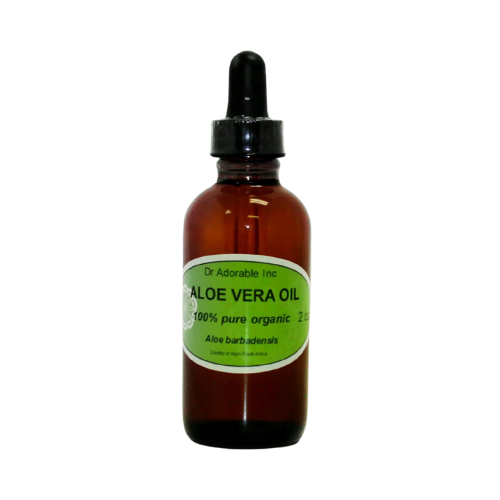
#2. Dr. Adorable – 100% Pure Aloe Vera Oil
This 100% pure aloe vera oil has been specially designed for its anti-bacterial, and anti-fungal properties. Featuring a best-of list of beneficial compounds associated with aloe vera oil, the extract itself has been highly successful when used in conjunction with other hair, skin, and health treatments.
How to use: hair can be dry or towel-dried before use. Apply 4-6 drops, or as needed, on each area of concern and massage into scalp thoroughly. Apply daily (AM or PM).
Before and After the Results of Dr. Adorable’s Aloe Vera Oil
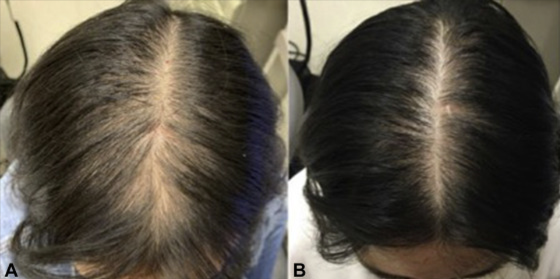
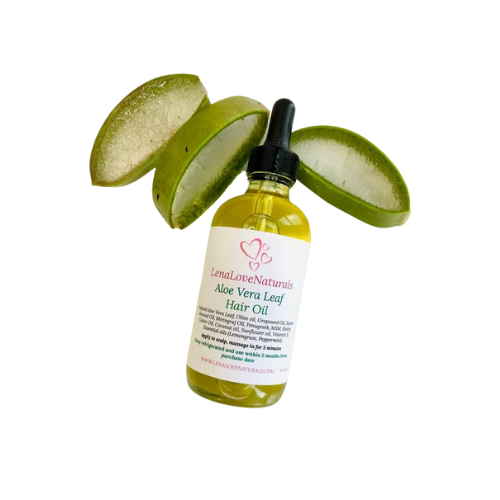
#3. LenaLoveNaturals Aloe Vera Hair Growth Oil
This aloe vera hair growth supplement is fantastic for use in scalp and hair care, reducing dry scalp and dandruff while promoting strong, healthy hair growth. Expect infusions with Olive Oil, Ayurvedic herbs, Castor Oil, Grapeseed Oil, Sunflower oil, Sweet Almond Oil, Biotin, MSM and Blend of Essential Oils.
How to use: apply to scalp and massage for 5 minutes.
No silicones, No parabens, No dyes. Only made with the best natural ingredients.
Refrigerate to enhance with longevity of the product, Can last up to 3 months when refrigerated.
Before and After Results of LenaLoveNaturals Aloe Vera Hair Growth Oil
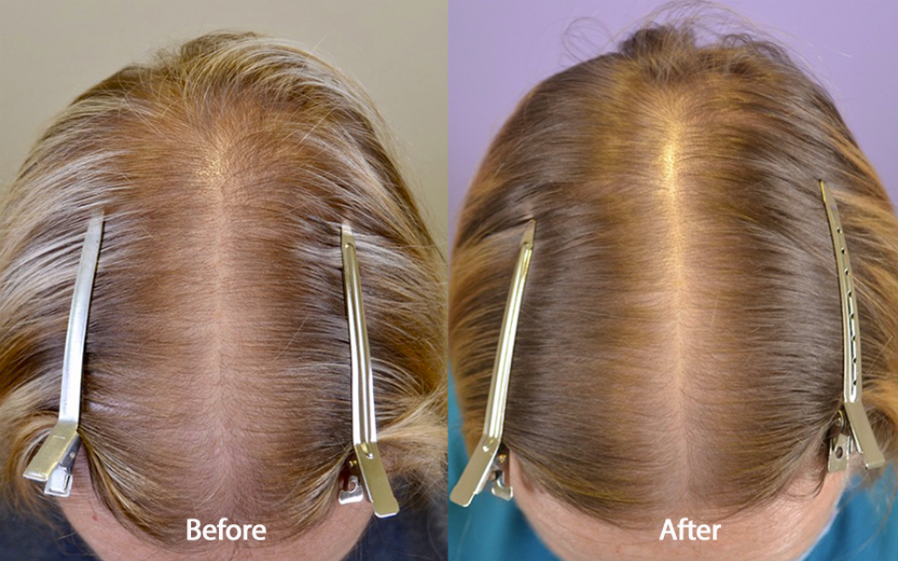
In Conclusion
In the world of hair care supplements, the most important rule is to always focus on hair health. Healthy hair leads to better hair growth and less breakage and falling out. And when it comes to improving the health of the hair you have, aloe vera oil is second to none.
This is a plant that has taken the skin and hair care industry by storm, in many respects, but also has the staying power of an industry-defining hair care juggernaut. It’s a product with many benefits, from moisturizing to managing and strengthening hair follicles. Massaging just a little oil into your hair can boost growth and help to manage split ends and dry, itchy scalp.
Incorporate aloe vera into your hair care and beauty regime, today, and get ready for a complete transformation in the overall health and sustainability of your hair.

